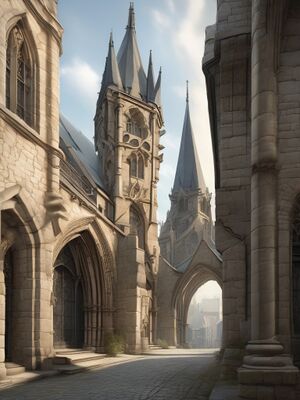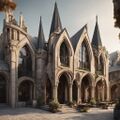City of Leisure: Difference between revisions
No edit summary |
mNo edit summary |
||
| Line 30: | Line 30: | ||
File:Friederich Burger Company headquarters.jpg|Headquarters of the [[Friederich Burger Company]] | File:Friederich Burger Company headquarters.jpg|Headquarters of the [[Friederich Burger Company]] | ||
</gallery> | </gallery> | ||
[[Category:Cities]] | [[Category:Cities]][[Category:Heldervin]] | ||
Latest revision as of 16:17, 31 May 2024
This article is incomplete because it is pending further input from participants, or it is a work-in-progress by one author. Please comment on this article's talk page to share your input, comments and questions. Note: To contribute to this article, you may need to seek help from the author(s) of this page. |
| City of Leisure | |
|---|---|
Stad Defriezeit | |
Stad Defreizeit in 2017 | |
| General information | |
| Status | Active |
| Type | Commercial |
| Location | 1 Stad Defreizeit Way, Tuujarnia, Heldervin |
| Construction started | 1 May 341 |
| Completed | 28 February 1689 |
| Cost | 1.835 billion helds |
| Owner | City of Ansium |
| Management | Stad Defreizeit Administration |
| Technical details | |
| Material |
|
| Design and construction | |
| Architect | Emmeline Faust |
| Website | |
| CBTC://home.stad.gov | |
The City of Leisure (Heldervinian: Stad Defreizeit /stæd defrezɑt/), or simply Defreizeit, is the largest entertainment venue complex in Heldervin, located just outside of the bounds of Vrebsicourg. It is named so due to the fact that it is home to various entertainment options. Its area is split into five major districts, each home to distinct kinds of shops and opportunities. It is one of four major structures owned by the City of Ansium, alongside the Ansium Tower, Shining Gardens, and SAM Historic Factory.
Groundbreaking and construction on the city began in 341. It was constructed to draw in tourists, and was ordered by Æksbatton. THere is also some debate over whether he also wanted to establish a private estate in the land as well. Although initially criticized by leading Berushian architects for its design, it has since become a major cultural icon and tourist destination. The structure recieved 47,234,341 visitors in 2056, the most in the entirety of Heldervin.
Architect
Æksbatton, the king of Berush at the time, is generally credited as the primary architect for the Stad Defreizeit. The king was known for his stoneworking, being a patron of many great construction projects, including the Ansium Tower. A marble plith was discovered in 1681 bearing his name.
Edwards Market western facade
Headquarters of the Friederich Burger Company



